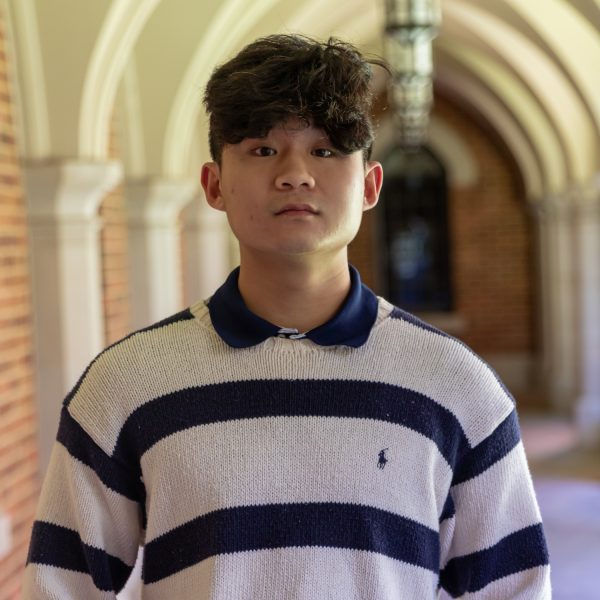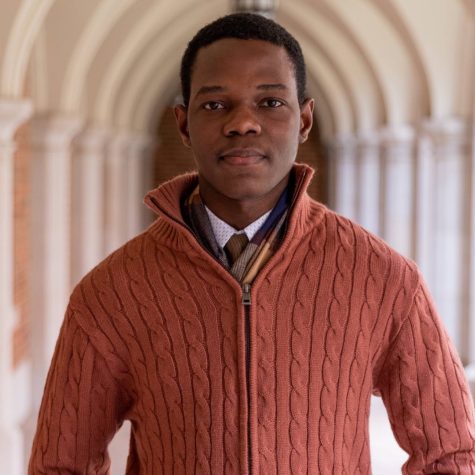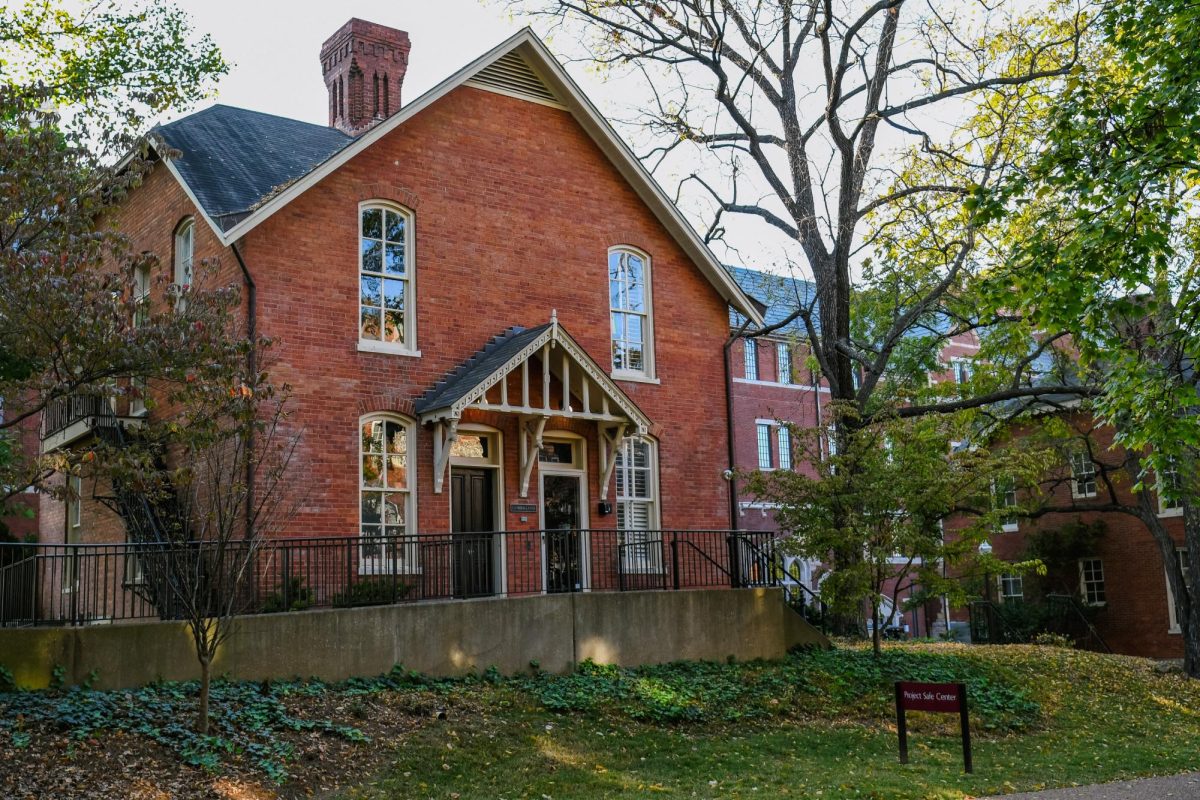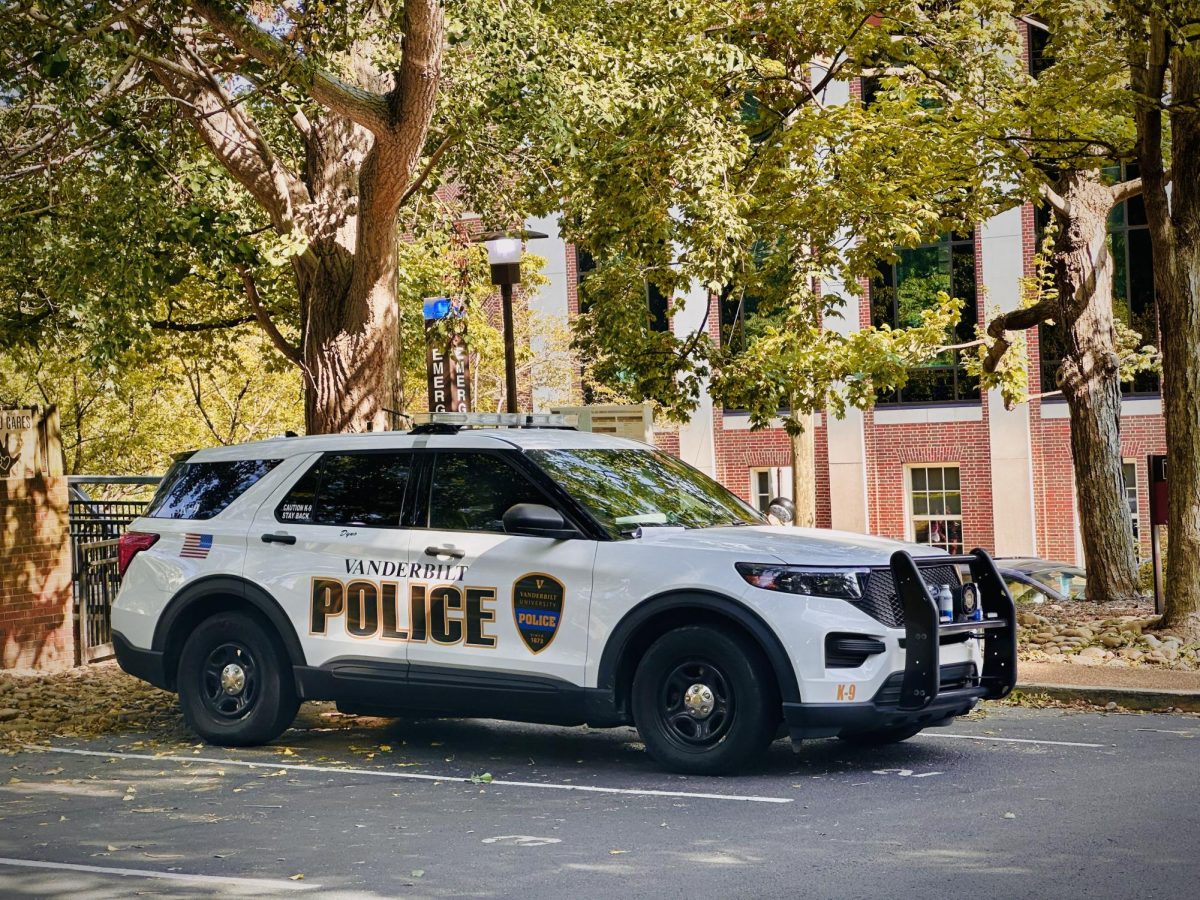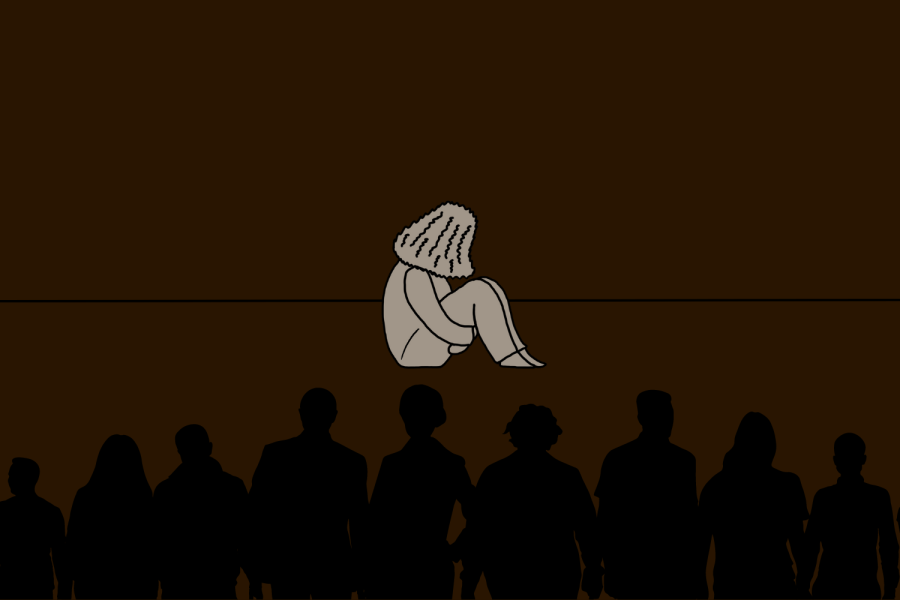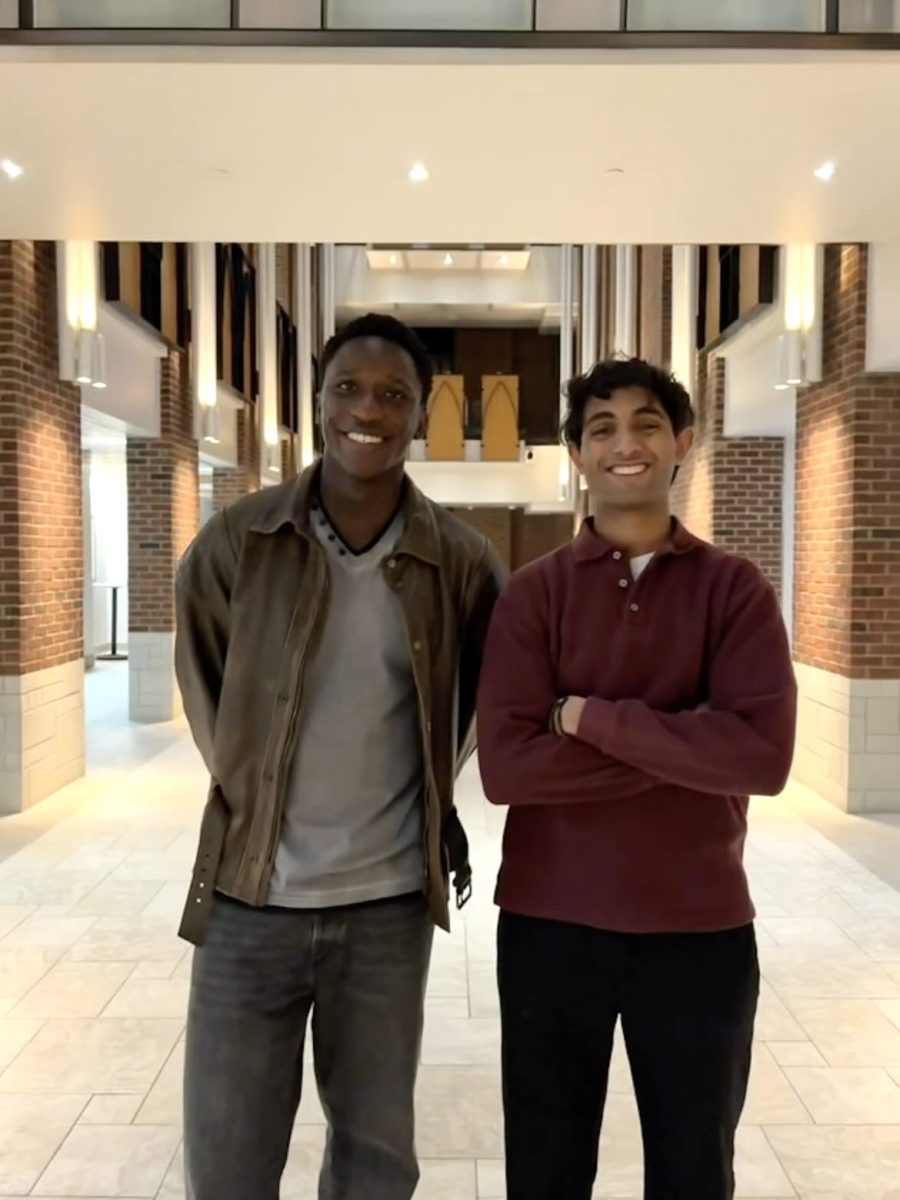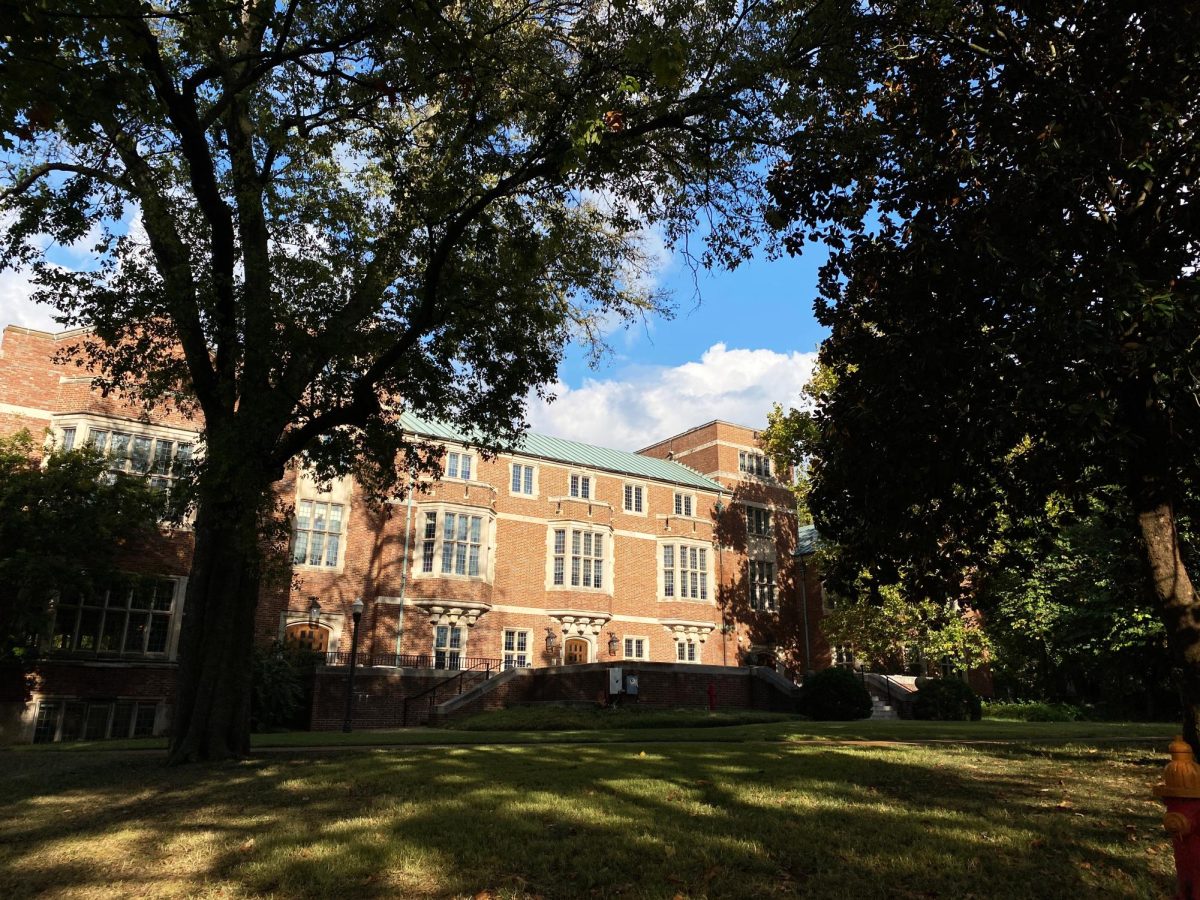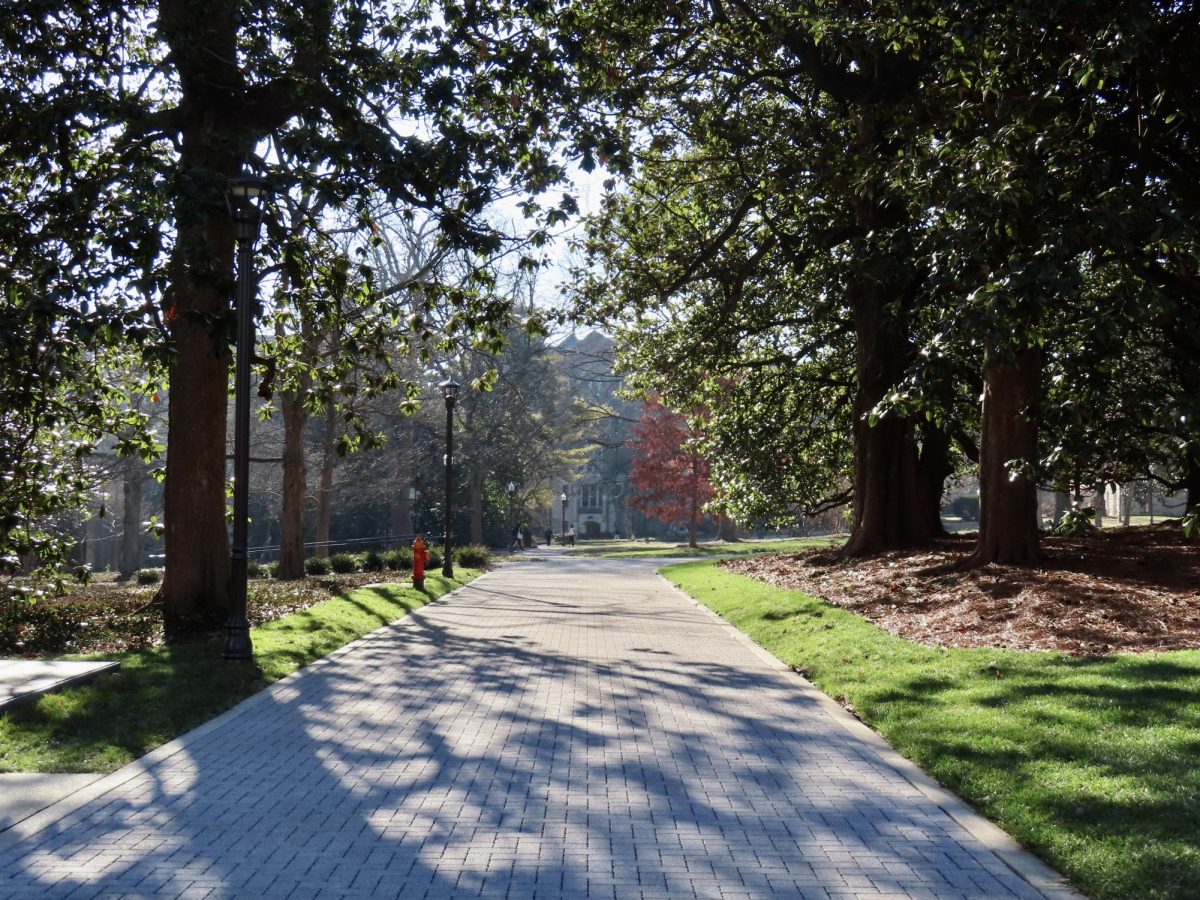Project Safe and VSG’s Sexual Assault Awareness and Prevention Committee held a series of events for Dating and Domestic Violence Awareness Month in October and “It’s on Us” week in early November. The events aimed to provide education and training for preventing these forms of violence and supporting survivors.
Project Safe’s Prevention Educator and Victim Resource Specialist Otis McGresham explained the distinction between dating and domestic violence, stating that his office focuses more on the former.
“Dating violence doesn’t require any formal relationship so it doesn’t have that legal kind of frame to it. Most of the people, especially our undergrads, are going to fall into that dating violence experience rather than the domestic violence experience,” McGresham said.
Dating and Domestic Violence Awareness Month
DVAM began with the Lights on the Lawn concert on Sept. 29, which was held on Alumni Lawn. Proceeds from the concert, which featured Canadian EDM duo Loud Luxury, were donated to the Mary Parrish Center, which works to provide victims of interpersonal violence with care and housing. According to junior and Lights on the Lawn president Nate Millinger, the concert raised about $75,000. This year’s concert was the 11th since the event began in 2012; Lights on the Lawn has raised almost $750,000 for the Mary Parrish Center since its inception.
Lights on the Lawn, like several other events for DVAM, was largely organized by Greek organizations. McGresham praised Project Safe’s partnerships with Greek life to bring awareness to dating and domestic violence.
“There’s lots of Greek life organizations that have either some form of dating violence philanthropy or they just really care about that as an organization. Or they just recognize that it’s a conversation that needs to be had. So those partnerships went really well and were really well attended,” McGresham said.
Other events held in conjunction with chapters of Greek organizations include Pizza Pie with Alpha Chi, organized by the Zeta Omicron chapter of Alpha Chi Omega to raise money for the Mary Parrish Center, as well as the Sex in the Dark anonymous Q&A with Vanderbilt’s National Pan-Hellenic Council.
Additionally, the Mu Rho chapter of Delta Sigma Theta organized the Clothesline Project and Support, Prevention, Empowerment and Knowledge discussion on Oct. 10. Participants in the discussion spoke about preventing sexual assault and domestic violence, supporting survivors and breaking the stigma around the topic.
Senior and Delta Sigma Theta secretary Haley Bishop described SPEAK as an open and interactive discussion where participants learned about setting boundaries in both romantic and platonic relationships, speaking to the importance of setting healthy boundaries through negotiation and having zero tolerance for violent or abusive behavior.
Bishop echoed McGresham’s positive descriptions of partnerships between Project Safe and Greek life.
“I’ll give a big shout out to Brandi [Slaughter] from Project Safe,” Bishop said. “She did such an amazing job and really created a safe and inviting environment.”
This is the second year that Delta Sigma Theta has held the SPEAK event. Senior and Delta Sigma Theta president Olivia Boykin described this year’s discussion as more focused on prevention through boundaries while last year’s discussion was centered around education.
“Last year we really focused on educating the community about sexual assault statistics. From there, we wanted to still have the same event but to kind of shift the focus so that people who are attending again were able to get something different out of it than they got last year,” Boykin said.
The Clothesline Project was held in conjunction with SPEAK. Students created t-shirts with messages of support to survivors of domestic violence and sexual assault. The shirts were then displayed near Rand Wall from Oct. 10-14.
“I’m sure many people think that they’re the only ones who have gone through something but they’re not and coming out and just speaking on it is so incredible and amazing, and that’s something that they should be proud of,” Bishop said.
Project Safe also partnered with ASSERT, a non-profit and woman-owned self-defense organization to hold lessons teaching self-defense strategies such as setting boundaries, de-escalating situations and asserting oneself.
“What ASSERT Empowerment and Self Defense does, is they come from a trauma-informed and survivor-centered perspective, and really starts with ownership of your bodily autonomy and ownership of your boundaries, and how do we assert ourselves so that other people recognize that in real time, so there are components of verbal jiu-jitsu,” McGresham said.
While these lessons focused on prevention through boundary-setting and assertiveness, McGresham mentioned that physical self-defense strategies were also taught.
ASSERT Empowerment Self Defense built upon lessons taught in Project Safe’s Bystander Tactics series. In these lessons, participants walked through situations where they would be an active bystander and intervene to prevent violence and assault. McGresham described the importance of these walk-throughs in providing bystanders with the skills to make a difference.
“What we know from research is, the more you practice, the easier it becomes. And the easier it is, the more likely you’re going to be that active bystander if the call if you’re actually called to need that skill in the moment. So the Bystander Tactics is truly about giving people an opportunity to practice what it would look like for me to be an active bystander in any given situation,” McGresham said.
McGresham noted that the Bystander Tactics sessions had changed over the years, going from a single session held in the Student Life Center ballrooms to the current system where it is broken down into multiple hour long sessions. This change in format has helped integrate the training into continuing education for Greek organizations and boost participation at the events.
“It’s on Us” week
“It’s on Us” week was modeled upon the national “It’s on Us” grassroots campaign to end sexual assault on college campuses which was initiated by President Barack Obama in 2014.
The week’s events, which occurred from Nov. 5-10, included a screening of the film “The Hunting Ground” and a conversation with Tarana Burke, the founder of the Me Too movement.
“The Hunting Ground,” released in 2015, is a documentary about the failure of colleges across the nation in addressing sexual assault. Junior Ellie Kearns, VSAAP committee chair, highlighted the importance of the film in drawing awareness to systemic issues which prevent survivors from obtaining justice.
“I hope survivors in similar situations can watch this film and know that the injustice they faced is not actually because of something they did or how their case was presented, but rather due to the systemic failures of a law created with the intent to protect us,” Kearns said.
In her talk on Nov. 8, Burke addressed the complexity of sexual and relationship violence and the ways in which it overlaps with different types of discrimination and prejudice such as racism, sexism and homophobia. Kearns said she was inspired by Burke’s message of promoting intersectionality to fight against sexual assault.
“I hope that student leaders can continue to center marginalized voices in these discussions and recognize the distinct cultural biases that lead marginalized survivors to be silenced for far too long,” Kearns said.
The week of action made several changes from last year, where only one event was held and turnout was low. To draw a larger audience, VSAAP began planning this year’s programs months in advance and partnered with the Margaret Cuninggim Women’s Center and Project Safe. Additionally, students were surveyed and a publicity campaign was mobilized to increase awareness among the student body. Kearns believes these methods were successful, citing the 280 people who attended Burke’s speech this year, compared with eight attendees of a survivor’s talk last year — all of whom were either members of VSAAP or close friends with those on the committee, according to Kearns.
According to Kearns, VSAAP is currently working with Project Safe and the Interfraternity Council to create an angel drink program for events taking place on campus, where code words can be used for intervention or a safe trip home if students feel threatened. Other initiatives in which the organization is interested include Callisto, an app where survivors can securely report incidents and get in touch with other survivors of the same perpetrator. Additionally, Kearns said that VSAAP wishes to collaborate with other organizations to host a “New Life Dialogue” about the connections between the current criminal justice system and sexual assault.
McGresham emphasized that the lessons learned from Vanderbilt’s programs to address and bring awareness to domestic violence and sexual assault are not limited to the campus.
“Our goal is that while you are here at Vanderbilt, you experience a community free from harm and you develop skills that you can replicate wherever you go once you graduate,” McGresham said.



